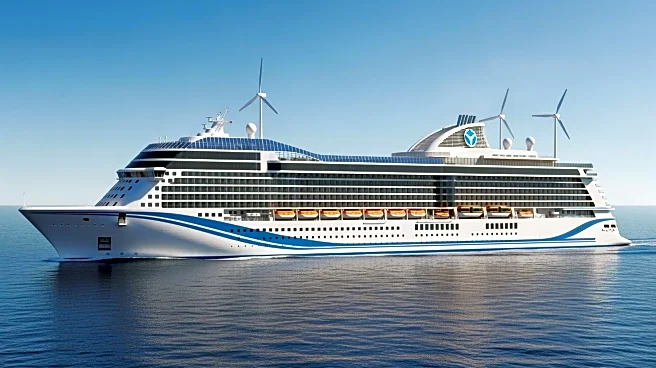What's Happening?
The cruise industry is making strides in reducing emissions through innovative energy systems. The Cruise Lines International Association (CLIA) reports a significant increase in ships capable of using shore power, with 166 ships now able to connect at ports.
This development is part of a broader effort to comply with the EU's Fit for 55 decarbonization regulations, which require major ports to have shore power by 2030. Additionally, researchers are developing hybrid off-grid systems that integrate wave and wind energy with hydrogen electricity conversion technologies. French engineering firm GTT, in collaboration with Bloom Energy and Ponant Explorations Group, is working on a system that includes fuel cells to cover hotel loads and reduce onboard emissions.
Why It's Important?
The cruise industry's shift towards hybrid energy systems is a critical step in addressing environmental concerns associated with maritime travel. By reducing reliance on traditional fuel sources, these innovations can significantly lower the industry's carbon footprint. This transition not only aligns with global decarbonization goals but also enhances the industry's sustainability credentials, potentially attracting environmentally conscious travelers. The development of such technologies could also stimulate further research and investment in renewable energy solutions, benefiting the broader maritime sector and contributing to global efforts to combat climate change.















